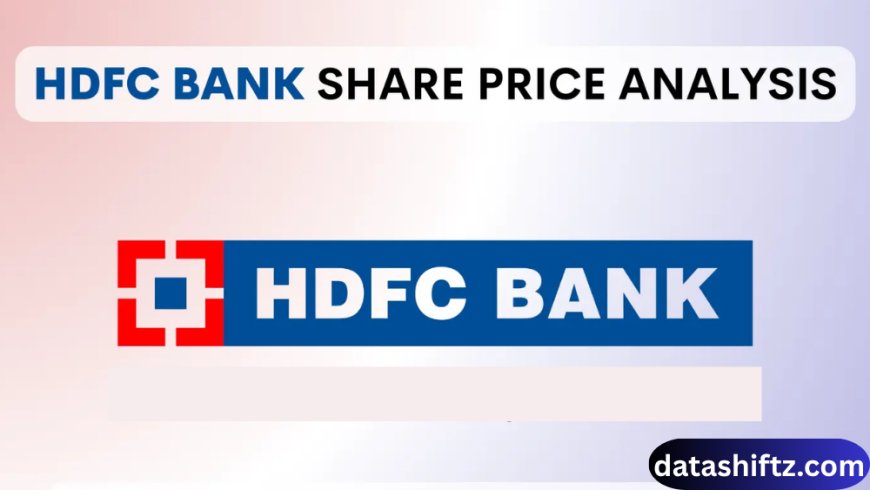HDFC Bank Share Price: A Detailed Analysis

Introduction
HDFC Bank Limited, a leading private-sector bank in India, has consistently been a preferred choice for investors due to its robust financial performance, extensive branch network, and innovative banking solutions. As of October 3, 2025, the bank's share price reflects its market position and investor sentiment. This article delves into the current share price of HDFC Bank, factors influencing its valuation, and considerations for potential investors.
Current Share Price Overview
Market Performance on October 3, 2025
-
Closing Price: ₹964.75
-
Day's Range: ₹949.95 – ₹966.95
-
52-Week High: ₹1,018.15 (July 30, 2025)
-
52-Week Low: ₹806.70
-
Trading Volume: 489,548 shares
-
Market Capitalization: ₹1,481,889.57 crore
On October 3, 2025, HDFC Bank's shares experienced a marginal decline of 0.05%, underperforming the broader market indices. The BSE SENSEX Index rose by 0.28% to 81,207.17 on the same day.
Financial Metrics and Valuation
| Metric | Value |
|---|---|
| P/E Ratio | 21.62 |
| EPS (TTM) | ₹44.57 |
| Dividend Yield | 1.14% |
| Debt-to-Equity | 1.11 |
| Return on Equity | 13.5% |
These metrics indicate that HDFC Bank is trading at a premium compared to its sectoral peers, reflecting investor confidence in its consistent performance and growth prospects.
Factors Influencing Share Price
1. Institutional Transactions
On October 3, 2025, HDFC Bank's shares saw a decline of up to 1.6%, falling to ₹949.95 on the BSE, following a significant block deal involving 26.5 lakh shares. Such large transactions often indicate institutional trades or strategic transfers, which can impact market sentiment.
2. Market Sentiment and Economic Indicators
The broader market's performance and economic indicators play a crucial role in influencing HDFC Bank's share price. Factors such as interest rate changes, inflation data, and GDP growth rates can affect investor expectations and, consequently, the bank's stock valuation.
3. Regulatory Environment
Changes in banking regulations, such as capital adequacy norms and lending guidelines, can impact HDFC Bank's operations and profitability. The Reserve Bank of India's policies and directives are closely monitored by investors for potential effects on the bank's performance.
Investment Considerations
Pros
-
Strong Financial Performance: Consistent growth in revenue and profitability.
-
Robust Asset Quality: Low non-performing assets (NPAs) and prudent risk management practices.
-
Extensive Network: Wide reach with a large number of branches and ATMs across India.
-
Innovative Offerings: Introduction of digital banking services catering to evolving customer needs.
Cons
-
Valuation Concerns: Higher P/E ratio compared to sectoral average may indicate overvaluation.
-
Regulatory Risks: Potential changes in banking regulations could affect operations.
-
Market Volatility: Exposure to market fluctuations and economic cycles.
Conclusion
HDFC Bank's share price on October 3, 2025, reflects a combination of factors, including institutional transactions, market sentiment, and economic indicators. While the bank demonstrates strong financial performance and growth prospects, potential investors should consider the associated risks and conduct thorough research before making investment decisions.





























